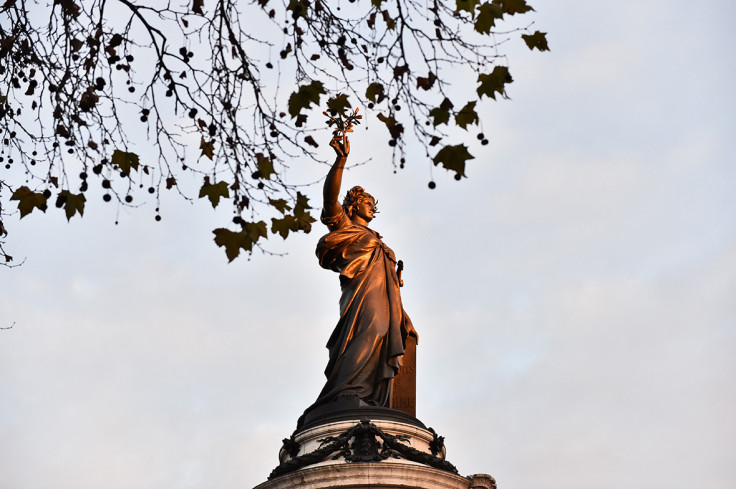Following Icelandic example, women in France walked out of their jobs at 4.34pm
The protest is meant to bring the issue of gender pay gap to the top of the political agenda.
Women across France have walked out of their jobs on 7 November at 4.34pm to protest against the gender pay gap. The difference in salary between women and men in the country is as such that, from that point of the year onwards, women are working for free compared to men.
The French protest was launched by Les Glorieuses, feminists activists who produce a weekly newsletter, to the rally of "female workers in France want pay equality". The group named the movement "7 november 16h34", calling on women, men, unions and feminist organisations to join and organise events and demonstration across the country to bring the issue of gender pay inequality to the top of the political agenda.
The call to the streets was enthusiastically supported by various organisations, from Oxfam to the Musée d'Orsay in Paris supporting the strike, and the left-wing daily newspaper Liberation dedicating its cover story to the event. French Prime Minister Manuel Valls tweeted: "The equality between men and women has to be at the heart of the [French] Republic. Always." Even presidential candidate for the Front National Marine Le Pen showed her support for the initiative in a tweet.
At least 10 rallies were listed on the event Facebook page in various cities starting 4.30pm local time (3.30pm GMT), from place de la Republique in Paris to place St Pierre in Toulouse, in the southern part of France.
The movement echoes the protest of women in Iceland, who stage a gender pay gap walkout every year at the time of the day in which they stop being paid equally to men. In France, the exact date and time was calculated taking into account Eurostat data for the average difference in hourly pay between male and female workers, which results in a 15% difference.
However, the activists say, other inequalities are hidden in this percentage. For instance, women do more unpaid housework, spending on average 1.5 hours more focusing on housework every day than men. Also, the pay inequality calculation does not factor in the difference in working part time.
Chair de poule, tant de femmes sur la place de la République #7novembre16h34 pic.twitter.com/FmPSz9j6I3
— Selyne (@Selynef) November 7, 2016
In the UK, gender pay gap is also a source of industrial action. Workers at the Fujitsu office in Manchester, which employs 760 employees, are already embattled in a dispute with their bosses which include gender pay gap along with pensions and job security. They are staging a 48-hour strike over 7-9 November, following from a previous strike on 1 November.
The union representing the workers, Unite, say that Fujitsu has a mean gender hourly pay gap of 16%, with the 137-strong female workforce is concentrated in lower-paid roles, and are on average paid less than men in the same role.
According to the Fawcett Society, the current overall gap for full time workers is 13.9% in the UK, despite having introduced the Equal Pay Act 46 years ago. This means that in 2016, women stop earning relative to men on the 10 November.
The Fawcett Society will mark 10 November as equal pay day using the hashtag #EqualValue. The magazine Stylist has already thrown its weight behind the initiative, with the staff vowing to leave the offices at 3.34pm.
Catherine Mayer, co-founder of the Women's Equality Party, told IBTimes UK that they look up to the Icelandic example in dealing with gender pay inequality. "I spent time in Iceland earlier this year and our policy chief is Icelandic and we are very actively looking at ways to translate into the political context here the lessons of Iceland," she said.

© Copyright IBTimes 2025. All rights reserved.






















